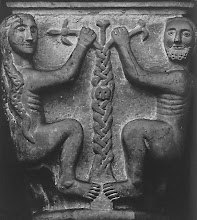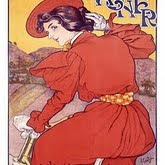What is it about the calling of migratory birds that stirs us?
In my part of the world, it is the sandhill cranes – their peculiar, triumphant croaking that marks winter’s approach, and a few months later, the return of spring.
I grew up reading and re-reading Hans Christian Andersen’s fairytales: the stories that lived within me most were all tales pivoting around the winged migration: the gallant robin who returns to Thumbelina and at last bears her away to the warm and flowery land; the storks who clatter their beaks together in sunny Egypt telling the story of the northern Swamp King’s daughter; and the Wild Swans – the seven brothers who return to carry their sister out of danger, the faithful sister weaving capes of nettles with blistered hands and mute in her own defense to save her brothers from their step-mother’s curse.
Something mysterious is happening in the skies. Is it any wonder we paint angels with wings, rushing down out of the sky with a message from on high?
The mark of the birds’ flight across the sky – an ideogram in moving ink. Their cry – a message we barely know how to understand.
I know I will stand still when the cranes go over, watching and listening as long as I can keep them in range. As if there were some warning or news – something more surprising than just, Winter is coming.
The poem “Wild Swans” – like most of Millay’s – is sleek, straightforward, measured in meter and rhyme. Her style is too simple sometimes for our post-Eliot age that loves complexity and ambiguity, but in this poem the way the words skim over our minds is like the flight of those migrating swans – orderly, expected and beyond us. Millay tosses the rhyming up in the air – abbc cbac – enough order to set up expectation, enough surprise to unbalance. And while the entire poem is written in pentameter (five emphasized beats per line), the lines are of varying syllabic length: both stanzas begin with a longer line (like the ribbon of flight trailing above us) and each subsequent line falls short of that first flight. The penultimate line (“Wild swans, come over the town, come over”) is the shortest in syllables – it is the line that cries out our lack, our falling short, our yearning for the flight of the wild swans.
Wild Swans
by Edna St. Vincent Millay
I looked in my heart while the wild swans went over
And what did I see I had not seen before?
Only a question less or a question more;
Nothing to match the flight of wild birds flying.
Tiresome heart, forever living and dying,
House without air, I leave you and lock the door.
Wild swans, come over the town, come over
The town again, trailing your legs and crying!
Subscribe to:
Post Comments (Atom)




6 comments:
Hi Emma! Thanks for leaving a comment the other day on my blog--nice to discover your blogs, and lovely to see these poems you've posted. I, too, love Thumbelina--and I do love that Andersen story of the wild swans!
Lovely blog, Emma. Love the matter/pattern bit. My mind immediately goes to the Amy Lowell poem when I see the word "patterns."
Happy to have discovered your little corner of the blogosphere.
I had forgotten ever reading Lowell's "Patterns" - tho I remember that last line "what are patterns for?" Thanks for the reminder!
I am so happy to have run into your blog today! I was flabbergasted at the depth and skill of your writing. I love St. Vincent Millay. This poem brougt to mind Leda and the Swan by Yeats (which brings another aspect to wild swans). Best, Margaret
Emma, I hope you still check this blog.
I just read "My Life as a Pantheist," by a woman who lives in New Mexico, and for whom sandhill cranes are a major source of inspiration.
I've memorized several Millay poems over time: Recuerdo, I Am Not Resigned, What Lips My Lips Have Kissed, maybe one or two more if I thought enough about it.
Millay is irresistably memorizable to me. I find myself muttering lines from her poems: "but ah my foes, and oh my friends, it gives a lovely light" "World I cannot hold thee close enough," "prithee let no bird call."
A poet I'm glad I never studied in school.
Post a Comment